- Home
- Sue Townsend
Number 10
Number 10 Read online
Sue Townsend
Number Ten
2002, EN
Jack Spratt is a policeman on the door of Number Ten. When the Prime Minister decides that the only way to get closer to the men and women on the street is to travel around the country incognito and find out what they really think, he enlists Jack’s help. Leaving his high-powered, ambitious wife to hold the fort, he and Jack set out. But neither can foresee how their extraordinary odyssey will impact on world affairs. Or their own lives.
Table of contents
PROLOGUE
1 · 2 · 3 · 4 · 5 · 6 · 7 · 8 · 9 · 10 · 11 · 12 · 13 · 14 · 15 · 16 · 17 · 18 · 19 · 20 · 21
TWENTY- TWO
EPILOGUE
∨ Number Ten ∧
PROLOGUE
Jack Sprat could eat no fat,
His wife could eat no lean,
And so between them both, you see,
They licked the platter clean.
John Clarke
Paroemiologia Anglo-Latina (1639)
Edward Clare was cleaning his teeth in the cavernous bathroom in Number Five Ann Street, Edinburgh. He was counting the brushstrokes in his head, as his mother had instructed; never less than 200. He was almost there when he remembered that he had stopped at 150 last night because he had been impatient to get on with his book—one of Mrs Blyton’s, concerning the Famous Five and an evil lighthouse-keeper.
When he reached the 200-brushstroke mark he left the washbasin and the comfort of the rubber that at its base and walked about in his bare feet on the cold linoleum until he had completed 50 more. He knew that God would be looking down on him, and that He would be pleased when He saw that Edward Clare had made up the deficit.
After rinsing his mouth clean of toothpaste, he wiped the washbasin with the ragged cloth that Mummy had hung on the S-bend. He went to the lavatory and carefully lifted the mahogany seat. He dropped his bri-nylon pyjama trousers then took a square of Bronco toilet paper from the dispenser on the wall and wrapped it carefully around his tiny pink penis.
He was still urinating when he heard the telephone ring in the hail downstairs. It rang for a worryingly long time. Mummy was in hospital and couldn’t answer, but where was Daddy?
Then he heard the door to the garden slam shut and his father’s footsteps running across the parquet floor in the hall, and the ringing stopped. Edward heard his father’s voice boom out: “Percy Clare here.”
Edward shook the last few drops of urine into the lavatory bowl, unwrapped his penis and pulled up his pyjamas. He gave the lavatory chain two short tugs and watched the Bronco paper swirl around the pan before disappearing. When the water in the pan was still he put down the seat. The garden door banged shut and after quickly washing his hands Edward went to the bedroom window and looked out. His father was walking away from him down the crazy-paving path; his shoulders were shaking as they did when he laughed. Edward smiled, anticipating the joke or the humorous anecdote his father would share with him at breakfast later.
Mummy had been in hospital for seven weeks and three days—since Pamela, Edward’s sister, was born—and Daddy now talked to him at the breakfast table instead of reading letters or the Morning Star.
Yesterday morning his father had asked Edward if he would ‘care to learn a musical instrument’. Edward was anxious to eat his Weetabix before they became unpleasantly soggy, so he said quickly, “Yes, Daddy.” Then named the first instrument to come into his head. “The guitar.”
His father had laughed. “The guitar! I think Mum was thinking of something in keeping with…I think Mum saw you joining her and her Thursday group, y’know, as part of the string quartet.”
Edward thought about Mummy’s Thursday friends. How dull they all were as they took off their coats and hats in the hall. Just ordinary men and women in heavy clothing with sensible shoes and good-natured, plain faces. How happy they looked once they were playing their instruments.
Edward watched his father sit down on the slimy green garden seat that nobody sat on. At first Edward thought that his father was still laughing—his face was set in a wide-mouthed grin. Edward smiled at the sight. Daddy had been gloomy lately, since Mummy had gone to the hospital. Perhaps the phone call had been from the doctor with the black moustache and red lipstick. Perhaps Mummy would be coming home.
Edward was pleased that his prayers had been answered. He glanced at the vividly coloured picture of Jesus that hung above his bed. Jesus was carrying a lamb under his left arm; in his right hand he carried a shepherd’s crook. Other lambs milled around Jesus’s bare feet. Edward’s father had sometimes grumbled about the picture, saying, “Eddy, your bloody Jesus looks like Errol Flynn in drag.” But Mummy must have liked Edward’s Jesus picture, because once a week she cleaned the picture glass with pink Windowlene and made it sparkle.
Edward struggled to open the sash window. Eventually it rose high enough for him to get his head between the gap. He smelled the rot of autumn air and heard a noise so terrible coming from his father that he was almost sick with fear. His father was wailing like those foreign women on the television news.
Edward pulled his head back inside his bedroom and ducked down under the window. He sat with his back to the wall. With luck his father hadn’t seen him. He felt inside his pyjamas and held his little penis in his hand. Mummy had told him not to touch himself down there, but Edward knew that—as of this morning—his mummy would never find out.
Edward didn’t go to school that day. He sat quietly in his room and read two chapters of his book.
People began to come to the house. The musicians, his father’s friends the communists, the neighbours, the congregation of the Anglican church where Heather played the organ at weddings, christenings and funerals.
Nobody actually told Edward that his mother was dead. Tearful relations grabbed him and wept over his head.
His favourite aunt, Jean, said to him, “Oh, Eddy, what will we do without her?”
But everybody thought that somebody else had told him, so nobody ever did. In the days before the funeral Edward turned into a spy. He listened at doors; he read every scrap of paper.
He was trying to detach a fossil from a rock face on a school trip to Bamburgh at the precise moment that Mummy was being burned to bits and turned into ashes. The adults around him had decided that it would be too distressing for such a little boy as he to attend a funeral. He had overheard Auntie Jean say to his father, “He can’t go, Percy. The poor kid was unnaturally close to his mother.”
He gleaned from this conversation that Pamela, the sister he had never seen, was to be taken to a country called England where she would live with Auntie Jean and Uncle Ernest.
At eleven o’clock on 1 October 1959 he stopped chipping away at the rock face and took out the piece of paper that was headed ‘The Funeral Service of Heather Mary Clare’.
He imagined his mother inside a coffin. What was she wearing? Had somebody combed her hair? Was she properly dead? What if the doctor with the red lipstick and black moustache had made a mistake and his mother was not dead—just sleeping? Hadn’t his father said to one of his communist friends that the doctor was a disgrace to the fucking National Health Service?
Edward clutched the funeral-service paper and knelt on the sand. Shards of rock pressed painfully into his bare knees but Edward ignored the pain. He tried to pray to Jesus, but his head was filled with a picture of his mother waking up inside her coffin and shouting to him to set her free. But how could he? He was more than 100 miles away. If he set off now and caught a fast train he would still be too late.
Mr Little, the geology teacher, shouted, “Clare, get a move on. We’ve only got half an hour before the tide turns.” The other little boys tapping at the rock looked up briefly, relieved
that it wasn’t them being admonished by the fierce Mr Little; it was Clare, the boy who wept for no reason at all at various times of the school day.
♦
Jack Sprat first realised that he was poor, dirty and from a disreputable family when he was sent by his mother to a neighbour’s house to borrow a saucepan. He was six years old and was wearing plimsolls in the snow. It was his older brother Stuart’s turn to wear the Wellingtons. Stuart had been sent to the shop with a note begging for credit, a white sliced loaf, two tins of beans and ten Woodbines.
Jack looked at the red carpet and felt the warmth of the radiator on the wall near the front door. He could see into the kitchen at the end of the passageway. Four saucepans were standing on the hob of the cooker. Steam was rising from under the lids and there was a smell that made his mouth leak.
Graham’s mother came into view and said, “Jack, where’s your coat?”
He replied, “I don’t know.”
She said, “You can’t walk around in your shirtsleeves in this weather. Does your mum know you’re out?”
He told her that his mum had sent him to ask if she could borrow us a saucepan; theirs had burned out ‘cause Mum had fell asleep and let the potatoes burn.
Mrs Worth stared at him and said incredulously, “You’ve only got one saucepan?”
“Yes,” Jack said.
Graham Worth looked at his mother and laughed. The lovely smell from their kitchen was like a luscious brown thing shimmering in the air between them all.
“Shut the door and come in,” she said irritably.
Jack closed the front door and walked down the passageway. Graham Worth went into the front room, lay belly-down on a blue fluffy rug in front of the gas fire and resumed watching Blue Peter. There was a waste bin next to the fireplace with a piece of orange peel caught on the rim. As Jack watched, Graham reached his hand out and when he brought it back he was holding the orange he’d been peeling before he had got up and answered the door.
Graham’s mother was bending down and rummaging around in a noisy cupboard full of metal things. Eventually she straightened up and Jack saw that she had a saucepan and lid in her hands. She wiped the interior of the saucepan with a red-and-white checked tea towel then placed the lid on top and handed the saucepan to Jack.
“You should be wearing a coat,” she said angrily to him.
“Stuart’s got it,” answered the boy in his peculiar deep voice.
She watched Jack walk away down her neat path, swept free of snow, and cross the frozen car tracks in the road and make his way towards his own house at Number Ten. The broken toys, rubbish and old car tyres that littered the Sprats small front garden were hidden by a merciful covering of snow. For once the house looked as neat and respectable as the others in the street.
∨ Number Ten ∧
ONE
It was 30 March and Constable Jack Sprat was standing on the doorstep of Number Ten Downing Street, sweating inside his bullet-proof jacket and talking to the Prime Minister. The sun was shining through the Prime Minister’s thinning hair. A car had just brought him back from the Angolan embassy.
“How’s your mother, Jack?”
“She’s getting over it slowly; I’m going up to Leicester to see her tonight, thank you, sir.”
“Mugging’s a very real problem,” said the Prime Minister. Jack, who had last seen his mother with her face covered in black bruises like storm clouds, agreed with him.
The Prime Minister squeezed the top of Jack’s arm and whispered, “Tell her I’ll pray for her, Jack. God listens.”
Jack was not comforted. He watched as the Prime Minister gave his shy smile to the cameras opposite before unbuttoning the jacket of his navy-blue suit and waving to the photographers. An unseen hand opened the door and the Prime Minister disappeared inside.
Jack spoke into the tiny microphone pinned to his lapel and confirmed that the PM had arrived safely. Jack doubted if the Prime Minister’s prayers would make much of a difference to his mother. She was an avowed atheist who had stopped believing in God when Jack’s brother, Stuart, had died in a squalid room in Bristol from an injection of adulterated heroin.
A voice in Jack’s ear told him that Ms Amelia Badstock and a group of teenage supporters were on their way to Number Ten to present a petition demanding recreational facilities for the youth of Newtown Linford.
He muttered ‘OK’ and prepared for the first of five petitions that were expected that day.
It was an ordinary day at Number Ten. The shiny black door opened and closed hundreds of times, admitting trades people, florists, dictators, an oil sheik, a pensioners’ group, civil servants, a manicurist, spin doctors, Poppy’s nanny, Su Lo, cabinet ministers, secretaries and MI5 operatives posing as telephone engineers.
Visitors were so used to seeing a policeman standing in the vicinity of the door that they tended to forget that behind the uniform and under the helmet was a sentient being with ears and a brain. Jack heard bits of conversation and pieces of dialogue and he stored them in his memory.
Inside, the Prime Minister was talking about saving Africa to his closest political friend and colleague, his press officer, Alexander McPherson.
McPherson had enjoyed notoriety at an early age. He was the youngest of six children, five of them girls, and throughout his childhood was petted and indulged by his elder sisters to such an extent that unless he got his own way he would fly into a rage and stage spectacular tantrums in the shopping street of the commuter village where they lived.
His first memory was of being wheeled around the garden in a doll’s pram while his sisters bickered over whose turn it was to push him next. He took female attention for granted and had lost his virginity by the age of thirteen. His sisters had a taste for novels that featured strong heroines—Wuthering Heights, What Katy Did, Lolita—and they would read to him at bedtime.
After leaving Balliol College, Oxford, he drifted into publishing and became the letters-page editor of an erotic magazine called Fetish; with Krafft-Ebing at his elbow he composed scurrilous answers to the mostly sad and sometimes boastful letters he received from readers.
There was an ugly rumour doing the rounds at one time that McPherson’s first contact with Edward Clare was via such a letter, but the truth was that their first meeting had been at Cambridge when McPherson had taken several of his girlfriends to see an amateur rock band called Vile Insinuations. The future Prime Minister was playing bass guitar and wore his hair in shoulder-length ringlets. However, McPherson had left in disgust, taking his girls with him, when Clare announced the band’s next number by saying, “I hope you enjoy this one, it’s called ‘Rockin’ Round the Cross’ and was inspired by Almighty God.” Their paths next crossed at a fund-raising reception at the House of Commons, where publishers were invited to contribute to Labour Party funds. McPherson stumped up fifty pounds and told Edward Clare, then still in opposition, what needed to be done if Labour were to win an election.
“You’ve gotta bland everything out, you’ve gotta duck and dive, you’ve gotta be all things to all men and you’ve gotta appeal to the women and so long as you’re never pictured in the press kicking a dog to death or something like that, and so long as you smile nicely and remember your manners, and so long as you let me manage the media, you’ll get in.”
The pair were now in the private sitting room of Number Ten. A GCSE geography coursework folder lay on the coffee table.
“We can save Africa, Alex.” The Prime Minister’s voice shook with emotion.
Alexander swung his big-framed fleshy body up from the arm of the cream sofa where he had been perching and began to roam around. “Africa?” he said. “You are, of course, joking?”
It was not a rhetorical question. In Alexander’s opinion, not only was Africa the white man’s graveyard, but also wanting to save Africa was a sign of serious mental derangement. Nothing and nobody could save Africa apart from the Africans themselves.
Alex said, “Tell
you what, Ed, it’s perhaps not a good idea to talk about Africa at the moment, not when we’re still trying to get the trains to run on time.”
But Edward was ready for him. “Africa is a dark stain on the conscience of the world. Somebody must lead the people out of the darkness of dying economies and into a sense of fiscal responsibility.”
Alex said impatiently, “Ed, we’ve gotta sort out fox hunting before we can start arsing about with the African subcontinent.”
Edward said quietly, “I do wish you wouldn’t swear, Alex. Adele’s in the next room feeding Poppy.”
Alex said, “Excuse me if I larf, but isn’t Adele the one who wrote a book called Arseholes in History?”
Edward’s smile slipped for a moment, then he said, “That was a book of serious scholarship. Henry Kissinger told me he has it on his bedside table.”
Adele shouted from the next room, “And it was at the top of The New York Times bestseller list for twelve consecutive weeks.”
“Anyroadup,” said Alexander, “can we sort out a few things, Ed? We’ve got an arse of a week. There are half a dozen reports out, crime’s up, and, according to the Rowntree Trust, five outta ten of the population are outta their minds on drink or drugs at any given time. Oh, and the mortuary workers are striking on Monday unless they get a ten per cent pay rise and a thirty-five-hour week.”
Edward said, “In Africa a little kid dies every ten seconds from a water-borne disease.”
Alex replied, “Yeah, my heart bleeds at the thought, but we’ll be knee-deep in fuckin’ corpses if we don’t sort the body-washers out, and the hot weather’s on the way, according to Michael Fish-face, so can I steer you back to this dark continent, Ed?”
David Samuelson came into the room preceded by the smell of Eau Sauvage. He had been uncharacteristically ham-fisted with the nozzle of the bottle that morning but hadn’t had time to change his shirt or jacket, which were now permeated with the stuff.

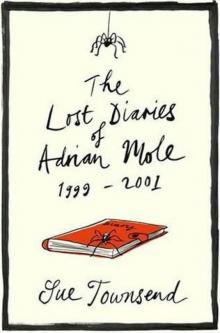 Adrian Mole 07; The Lost Diaries 1999-2001
Adrian Mole 07; The Lost Diaries 1999-2001 The Growing Pains of Adrian Mole
The Growing Pains of Adrian Mole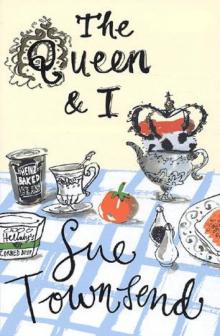 The Queen and I
The Queen and I Ghost Children
Ghost Children Adrian Mole and the Weapons of Mass Destruction
Adrian Mole and the Weapons of Mass Destruction True Confessions of Margaret Hilda Roberts Aged 14 ¼
True Confessions of Margaret Hilda Roberts Aged 14 ¼ Adrian Mole: The Cappuccino Years
Adrian Mole: The Cappuccino Years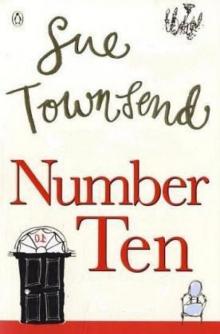 Number 10
Number 10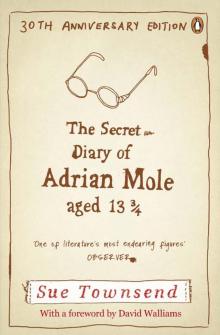 The Secret Diary of Adrian Mole, Aged 13 3/4
The Secret Diary of Adrian Mole, Aged 13 3/4 True Confessions of Adrian Albert Mole
True Confessions of Adrian Albert Mole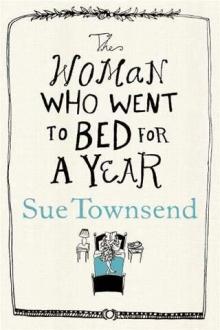 The Woman Who Went to Bed for a Year
The Woman Who Went to Bed for a Year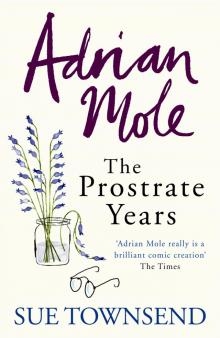 Adrian Mole: The Prostrate Years
Adrian Mole: The Prostrate Years Adrian Mole: The Wilderness Years
Adrian Mole: The Wilderness Years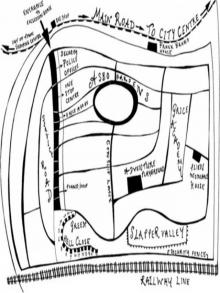 Queen Camilla
Queen Camilla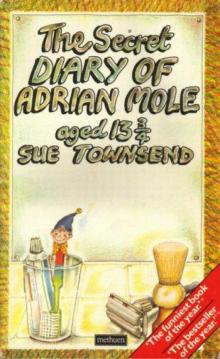 The Secret Diary of Adrian Mole, Aged 13 3⁄4 am-1
The Secret Diary of Adrian Mole, Aged 13 3⁄4 am-1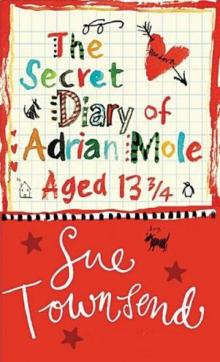 The Secret Diary of Adrian Mole, Aged 13¾ (1982)
The Secret Diary of Adrian Mole, Aged 13¾ (1982) The True Confessions of Adrian Mole, Margaret Hilda Roberts and Susan Lilian Townsend
The True Confessions of Adrian Mole, Margaret Hilda Roberts and Susan Lilian Townsend Adrian Mole: Diary of a Provincial Man
Adrian Mole: Diary of a Provincial Man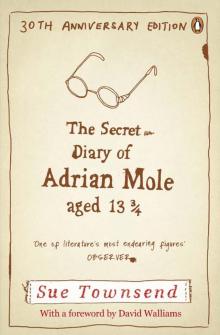 The Secret Diary of Adrian Mole Aged 13 3/4 (Adrian Mole 1)
The Secret Diary of Adrian Mole Aged 13 3/4 (Adrian Mole 1)